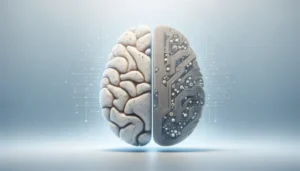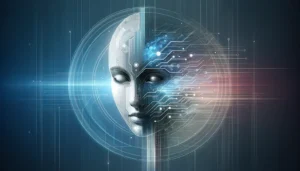Fundamentals of Quantum Computing
Quantum computing leverages quantum mechanics principles to process information in a way fundamentally different from classical computing. It uses qubits instead of classical bits.
By exploiting phenomena like superposition and entanglement, quantum computers can perform complex calculations simultaneously, enabling potentially enormous speedups in computation.
Qubits and Superposition
Qubits differ from classical bits as they can exist in states representing 0, 1, or both at once, thanks to the quantum property called superposition. This allows quantum computers to explore many possibilities simultaneously.
This ability to represent multiple states at once enables algorithms to solve certain complex problems faster than classical counterparts, by handling diverse outcomes in parallel rather than sequentially.
Superposition is key to a quantum computer’s power, as it creates a vast computational space, vastly exceeding classical binary limits for certain tasks like searching and factoring.
Entanglement and Quantum States
Entanglement is a unique quantum phenomenon where qubits become linked so the state of one qubit instantaneously influences another, no matter the distance between them.
This interconnectedness allows quantum computers to perform operations that depend on the combined state of multiple qubits, vastly enhancing computational performance on relevant problems.
Entangled qubits enable more efficient information processing within quantum systems, supporting intricate correlations that classical systems cannot replicate.
Interesting Insight
Entanglement defies classical intuition about locality, illustrating the non-classical nature of quantum states that quantum computers harness to achieve unparalleled computation.
Advantages Over Classical Computing
Quantum computers offer significant advantages over classical machines by exploiting quantum phenomena like superposition and entanglement. These enable new modes of computation.
Such advantages translate into faster solutions to problems that are prohibitively slow for classical computers, especially in areas demanding simultaneous exploration of many possibilities.
This leap in capability opens up a wide range of applications that benefit from quantum speedups and enhanced computational efficiency.
Speedup in Problem Solving
Quantum computing achieves a remarkable speedup in solving specific problems by evaluating vast numbers of possibilities simultaneously through superposition.
This parallelism allows quantum algorithms to outperform classical ones in tasks like factoring large integers, searching unsorted databases, and solving complex optimization problems.
Notably, this speedup is not universal but shines in problems where quantum phenomena can be fully harnessed, providing exponential or polynomial improvements.
Applications in Cryptography and Drug Discovery
Quantum computers threaten traditional cryptography by efficiently factoring large numbers, potentially breaking widely used encryption schemes.
Conversely, they offer powerful tools for drug discovery by simulating molecular interactions at a quantum level, enabling faster and more accurate modeling than classical methods.
This capability can speed up the identification of viable drugs and materials, transforming pharmaceutical research and security technologies alike.
Optimization and Simulation Capabilities
Quantum machines excel in solving complex optimization problems arising in logistics, finance, and artificial intelligence by navigating immense solution spaces efficiently.
They also simulate quantum systems natively, facilitating accurate modeling of chemical reactions and physical processes unattainable by classical simulation.
These strengths promise enhanced performance and new possibilities in industries where classical computers struggle with scale or complexity.
Current Challenges in Quantum Computing
Despite its promise, quantum computing faces numerous technical and developmental obstacles that hinder widespread practical use. These challenges span from hardware limitations to error management.
Progress requires overcoming delicate quantum state control, scaling qubit numbers, and ensuring long coherence times, all critical to achieving reliable quantum computation.
Addressing these difficulties is essential for transitioning quantum devices from experimental prototypes to robust tools capable of solving real-world problems efficiently.
Technical and Developmental Obstacles
Quantum computers rely on qubits that are extremely sensitive to environmental noise and interference, leading to decoherence and errors during computation.
Error correction methods exist but demand substantial qubit overhead, complicating efforts to scale systems while maintaining accuracy and stability.
Additionally, fabricating and controlling large qubit arrays require advanced materials, precision engineering, and cryogenic environments, posing significant engineering hurdles.
Developers also face difficulties integrating quantum processors with classical control systems, as well as optimizing quantum algorithms for noisy intermediate-scale quantum (NISQ) devices.
Future Impact and Opportunities
The future of quantum computing lies in its ability to complement classical computers rather than replace them, adding new computational power for specific tasks.
By integrating quantum processors as specialized co-processors, classical systems can leverage quantum advantages for problems intractable for traditional machines.
Complementing Classical Computers
Quantum computers will serve as a valuable addition to classical infrastructures, handling tasks like complex optimization and simulations that classical computers find challenging.
This hybrid approach allows industries to combine the reliability of classical computing with the unique speedups quantum devices provide for specialized problems.
Thus, quantum computing acts as a powerful tool enhancing existing technologies, widening the scope of what is computationally achievable.
Transforming Industries and Computational Limits
Quantum computing promises to transform various industries, from cryptography to pharmaceuticals, by enabling solutions for problems beyond classical capacities.
Its potential to break current encryption, accelerate drug discovery, and optimize complex logistics could redefine technological and scientific progress.
Moreover, it pushes the boundaries of computation by tapping into quantum mechanics, offering a paradigm shift in problem-solving capabilities.







